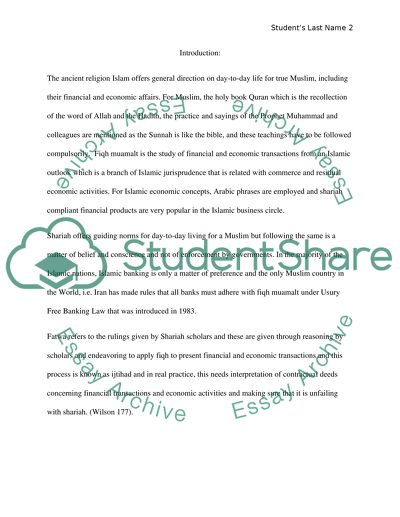Cite this document
(“Islam in Business Essay Example | Topics and Well Written Essays - 3000 words”, n.d.)
Retrieved from https://studentshare.org/environmental-studies/1417111-islam-in-business
Retrieved from https://studentshare.org/environmental-studies/1417111-islam-in-business
(Islam in Business Essay Example | Topics and Well Written Essays - 3000 Words)
https://studentshare.org/environmental-studies/1417111-islam-in-business.
https://studentshare.org/environmental-studies/1417111-islam-in-business.
“Islam in Business Essay Example | Topics and Well Written Essays - 3000 Words”, n.d. https://studentshare.org/environmental-studies/1417111-islam-in-business.


